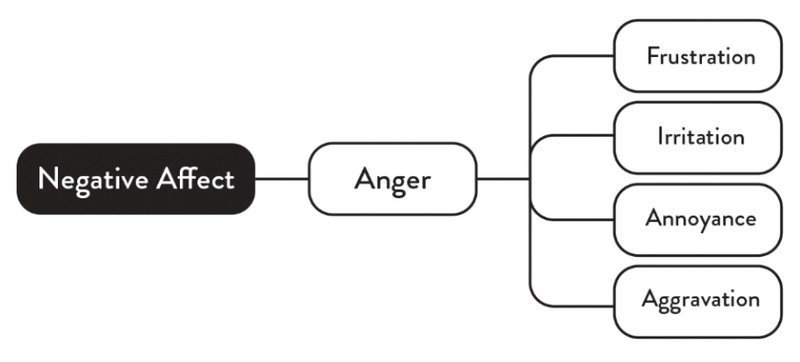The aim of this policy is to ensure that D.ESCAL8™ and its staff comply at all times with the Data Protection Act (1998), the Freedom of Information Act (2000) and the EU General Data Protection Regulation (GDPR).
DATA PROTECTION POLICY
The aim of this policy is to ensure that D.ESCAL8™ and its staff comply at all times with the Data Protection Act (1998), the Freedom of Information Act (2000) and the EU General Data Protection Regulation (GDPR).
INTRODUCTION
D.ESCAL8™ needs to gather and use certain information about individuals; these can include customers, service users, suppliers, business contacts, employees and other people that we have a relationship with or need to contact. This policy describes how this personal data must be collected, handled and stored to meet the company’s data protection standards - and to comply with the law.
Why this policy exists
This data protection policy ensures D.ESCAL8™:
- complies with data protection law and follows good practice
- protects the rights of staff, customers and partners
- is open about how it stores and processes individuals’ data
- protects itself from the risks of a data breach
DATA PROTECTION LAW
The Data Protection Act 1998 describes how organisations - including D.ESCAL8™ - must collect, handle and store personal information. These rules apply regardless of whether data is stored electronically, on paper or on other materials. To comply with the law, personal information must be collected and used fairly, stored safely and not disclosed unlawfully.
The Data Protection Act is underpinned by eight important principles. These say that personal data must:
- be processed fairly and lawfully
- be obtained only for specified, lawful purposes
- be adequate, relevant and not excessive
- be accurate and kept up to date
- not be held for any longer than necessary
- processed in accordance with the rights of data subjects
- be protected in appropriate ways
- not be transferred outside the European Economic Area (EEA), unless that country or territory also ensures an adequate level of protection
The General Data Protection Regulation (GDPR) (2018) is a legal framework that sets guidelines for the collection and processing of personal information of individuals within the European Union (EU). The GDPR sets out the principles for data management and the rights of the individual, while also imposing fines that can be revenue-based. The General Data Protection Regulation covers all companies that deal with data of EU citizens.
PEOPLE, RISKS AND RESPONSIBILITIES
Policy scope
This policy applies to:
- the head office of D.ESCAL8™
- all staff and volunteers of D.ESCAL8™ contractors, suppliers and other people working on behalf of D.ESCAL8™
It applies to all data that the company holds relating to identifiable individuals. This can include:
- names of individuals
- postal addresses
- email addresses
- telephone numbers
As well as any other information relating to individuals.
Data protection risks
This policy helps to protect D.ESCAL8™ from some very real data security risks, including:
- breaches of confidentiality; for instance, information being given out inappropriately
- failing to offer choice; for instance, all individuals should be free to choose how the company uses data relating to them
- reputational damage; for instance, the company could suffer if hackers successfully gained access to sensitive data.
Responsibilities
Everyone who works for or with D.ESCAL8™ has responsibility for ensuring data is collected, stored and handled appropriately and legally. Each individual or team that handles personal data must ensure that it is handled and processed in line with this policy and data protection principles and laws.
The Director is ultimately responsible for ensuring that D.ESCAL8™ meets its legal obligations, including:
- reviewing all data protection procedures and related policies annually
- arranging data protection training and advice for the people covered by this policy
- handling data protection questions from staff and anyone else covered by this policy
- dealing with requests from individuals to see the data D.ESCAL8™ holds about them (also called ‘subject access requests’)
- checking and approving any contracts or agreements with third parties that may handle the company’s sensitive data
- ensuring all systems, services and equipment used for storing data meet acceptable security standards
- performing regular checks and scans to ensure security hardware and software is functioning properly
- evaluating any third-party services the company is considering using to store or process data; for instance, cloud computing services
- approving any data protection statements attached to communications such as emails and letters
- addressing any data protection queries from journalists or media outlets like newspapers
- where necessary, working with other staff to ensure marketing initiatives abide by data protection principles
GENERAL GUIDELINES
- the only people able to access data covered by this policy should be those who need it for their work
- data should not be shared informally
- D.ESCAL8™ will provide training to any employees to help them understand their responsibilities when handling data
- employees should keep all data secure, by taking sensible precautions and following the guidelines below
- in particular, strong passwords must be used and they should never be shared
- personal data should not be disclosed to unauthorised people, either within the company or externally
- data should be regularly reviewed and updated if it is found to be out of date; if no longer required, it should be deleted and disposed of
- employees should request help from their line manager or the data protection officer if they are unsure about any aspect of data protection
Data storage
These rules describe how and where data should be safely stored.
When data is stored on paper, it should be kept in a secure place where unauthorised people cannot see it.
These guidelines also apply to data that is usually stored electronically but has been printed out for some reason:
- when not required, the paper or files should be kept in a locked drawer or filing cabinet
- employees should make sure paper and printouts are not left where unauthorised people could see them, like on a printer
- data printouts should be shredded and disposed of securely when no longer required
When data is stored electronically, it must be protected from unauthorised access, accidental deletion and malicious hacking attempts:
- data should be protected by strong passwords that are changed regularly and never shared between employees
- if data is stored on removable media (like a CD or DVD), these should be kept locked away securely when not being used
- data should only be stored on designated drives and servers, and should only be uploaded to an approved cloud computing services
- servers containing personal data should be sited in a secure location, away from general office space
- data should be backed up frequently; those backups should be tested regularly in line with the company’s standard backup procedures.
- all servers and computers containing data should be protected by approved security software and a firewall
Data use
When personal data is accessed and used that it can be at the greatest risk of loss, corruption or theft:
- when working with personal data, employees should ensure the screens of their computers are always locked when left unattended
- personal data should not be shared informally, in particular, it should never be sent by email, as this form of communication is not secure, unless password protected
- personal data should never be transferred outside of the European Economic Area
- employees should not save copies of personal data to their own computers
D.ESCAL8™ do not sell or share any information to third parties.
Lawful basis for data processing under GDPR
Purchasing Organisations
D.ESCAL8™ store information from purchasing organisations under the ‘contract’ lawful basis of the GDPR. As part of our contract with purchasing organisations, and under the British Institute of Learning Disabilities (BILD) Code of Practice, D.ESCAL8™ keep records of all training needs analysis, behavioural audits as well as the details of all course participants (including their competence and assessment details).
Course Participants
The course registration form requires you to provide D.ESCAL8™ with your name, place of work and designation. Under the British Institute for Learning Disabilities (BILD) Code of Practice (2014) we are required to record these details as well as any test scores and competency reports (this forms part of the contract with have with the organisation purchasing our services).
We keep the training registration document as the participants sign this to confirm they are fit to complete the course under the contract we have the purchasing organisation.
Participants are asked for their consent to be added to our mailing list under the positive opt in principal. This is explained in course booklets and in the Precourse Information. D.ESCAL8™ use Mailchimp to manage this data.
Data accuracy
The law requires D.ESCAL8™ to take reasonable steps to ensure data is kept accurate and up to date. It is the responsibility of all employees who work with data to take reasonable steps to ensure it is kept as accurate and up to date as possible.
- data will be held in as few places as necessary; staff should not create any unnecessary additional data sets
- staff should take every opportunity to ensure data is updated, for instance, by confirming a customer’s details when they call
- data should be updated as inaccuracies are discovered, for instance, if a customer can no longer be reached on their stored telephone number it should be removed from the database
Subject access requests
All individuals who are the subject of personal data held by D.ESCAL8™ are entitled to:
- ask what information the company holds about them and know the legal basis under the GDPR (2018) for holding such data
- ask how to gain access to it
- be informed how to keep it up to date
- be informed how the company is meeting its data protection obligations If an individual contacts the company requesting this information this is called a ‘subject access request.’
Disclosing data for other reasons
In certain circumstances, the Data Protection Act allows personal data to be disclosed to law enforcement agencies without the consent of the data subject. Under these circumstances, D.ESCAL8™ will disclose requested data. However, the data controller will ensure the request is legitimate, seeking assistance from the Director and gaining legal advice where necessary.
- the data controller will aim to provide the relevant data within 14 days
- the data controller will always verify the identity of anyone making a subject access request before handing over any information
Providing information
D.ESCAL8™ aims to ensure that individuals are aware that their data is being processed, and that they understand:
- how the data is being used
- how to exercise their rights We provide this information in our pre-course information to all participants, in our course booklets and on our website.













